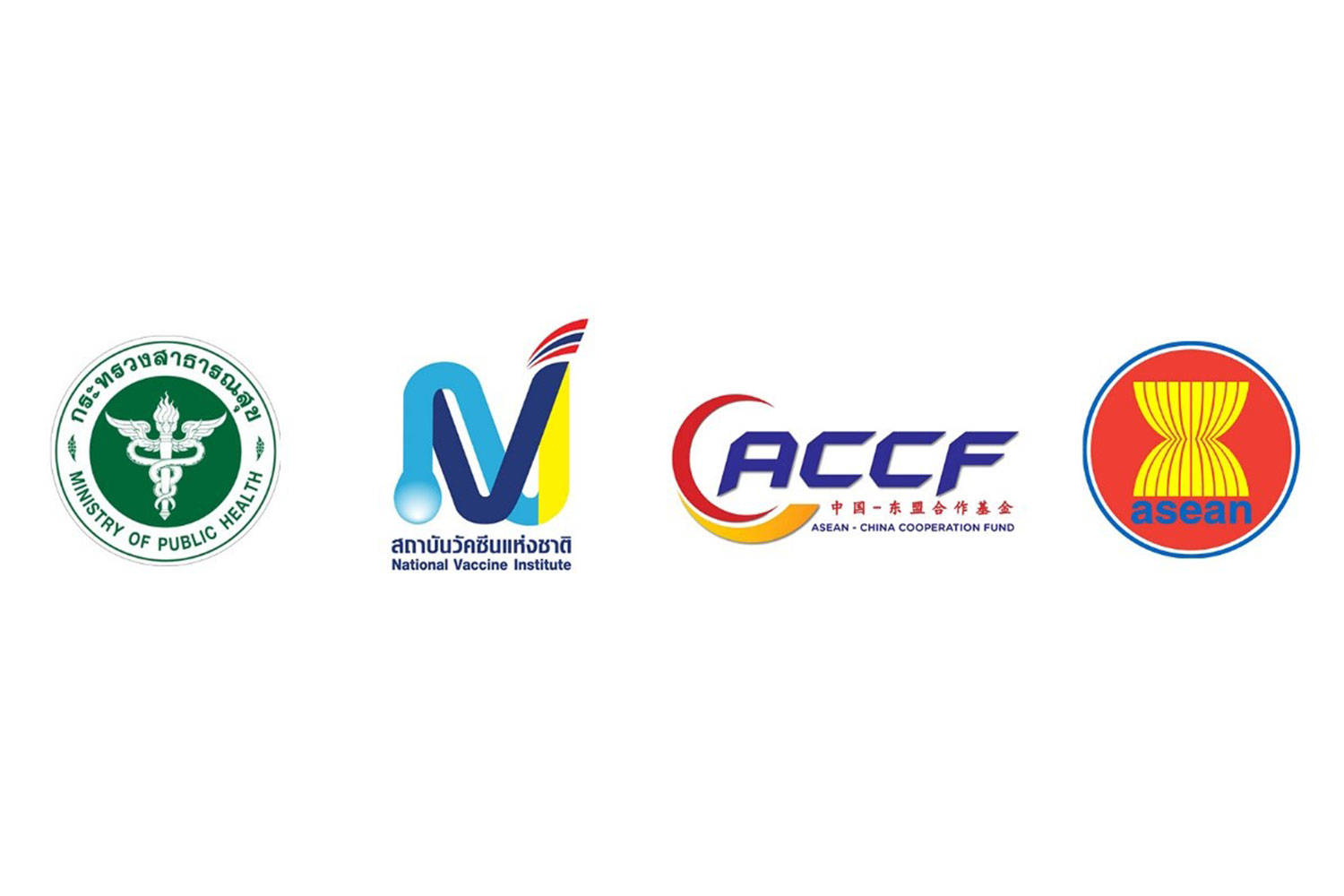
Aiming to push Thailand and ASEAN onto the world stage as a leading vaccine manufacturer

National Vaccine Institute (NVI) in collaboration with Ministry of Public Health (MOPH) and ASEAN Secretariat organised the ASEAN Vaccine Network Consultation Meeting on Regional Vaccine Manufacturing Development to exchange vaccine knowledge between ASEAN member countries and global strategic partners. The meeting was in preparation for potential health threats in the future through the building of strong vaccine networks, capacity building, reinforcing and expanding cooperation in mutual research and development of effective vaccines.
ASEAN Vaccine Network Consultation Meeting on Regional Vaccine Manufacturing Development was held during 14-15 September 2022 at Renaissance Bangkok Ratchaprasong Hotel. International attendees included those from ASEAN member countries, Developing Countries Vaccine Manufacturers Network, World Health Organisation (WHO), UNICEF, CEPI, The ASEAN Secretariat (ASEC), International Vaccine Institute (IVI), Embassy of The People’s Republic of China in the Kingdom of Thailand and the ASEAN Plus China Framework representative who supported the meeting under the ASEAN-China framework. The online and onsite meeting attracted over 70 participants.

The meeting was honoured by: Dr. Sathit Pitutecha, Deputy Minister of Public Health; H.E. Mr. Ekkaphab Phanthavong, Deputy Secretary-General of ASEAN; H.E. Mr. Han Zhiqiang, Ambassador Extraordinary and Plenipotentiary of the People's Republic of China to the Kingdom of Thailand; Dr. Supakit Sirilak, Director-General of the Department of Medical Sciences; and Dr. Manit Teeratantikanont, who delivered opening speeches.
“Thailand’s National Vaccine Institute (NVI) has pushed the concept of ‘Vaccine Security’ onto the international stage since 2014. As NVI foresees that effective vaccines are important and help secure social welfare of Thai and ASEAN people, the institute has proceeded to create vaccine networks,” Dr. Sathit said. “General Prayut Chan-o-cha, as prime minister at the time, presided over the opening ceremony of the 35th ASEAN Summit and Related Summits in Bangkok, marking the first step towards the Ministry of Public Health pushing forward Thailand’s vaccine policies into the ASEAN.”
The meeting was the first gathering of vaccine policymakers from ASEAN member countries and health and vaccine professional networks from international organisations, comprising WHO, United Nations Children’s Fund (UNICEF), IVI, vaccine manufacturer networks in Thailand, and representatives from ASEAN Plus Three countries (China, Republic of Korea, Japan). The main objectives of the meeting were to help ASEAN expand vaccine networks, build and tighten relations between ASEAN and China and create opportunities for vaccine makers in China and ASEAN to experience more channels for stepping into the global arena with the help of related vaccine networks, so as to better access innovative technology and vaccine markets while keeping security and sustainability at the core.
Dr. Manit said, “The 3rd ASEAN Cooperation Network Meeting in Achieving Vaccine Security and Self-reliance was held with the main objective of improving vaccine security. If we become self-reliant in producing vaccines for normal and emergency use, national vaccine security will be stronger. Moreover, manufacturing vaccines in ASEAN means that everyone can buy and sell them, so vaccine development can proceed faster.”
Dr. Nakorn expanded on the topic of vaccine security, saying, “To have adequate vaccines to cover both normal and emergency situations, we have drafted a collaboration among ASEAN countries, known as “The five-year strategic and action plan”, with the main goal of developing personnel potential at both ASEAN and global levels. This will be an important step towards self-reliance in the field of vaccines. It is also necessary to accelerate building the vaccine potential collaboration of ASEAN by updating global virus information which, in turn, requires accurate exchange of information, finding a mechanism for creating cooperation in research and development of vaccines together, and making preparations locally and regionally. All this marks significant progress to achieving the ultimate goal of ensuring long-term vaccine security.”
